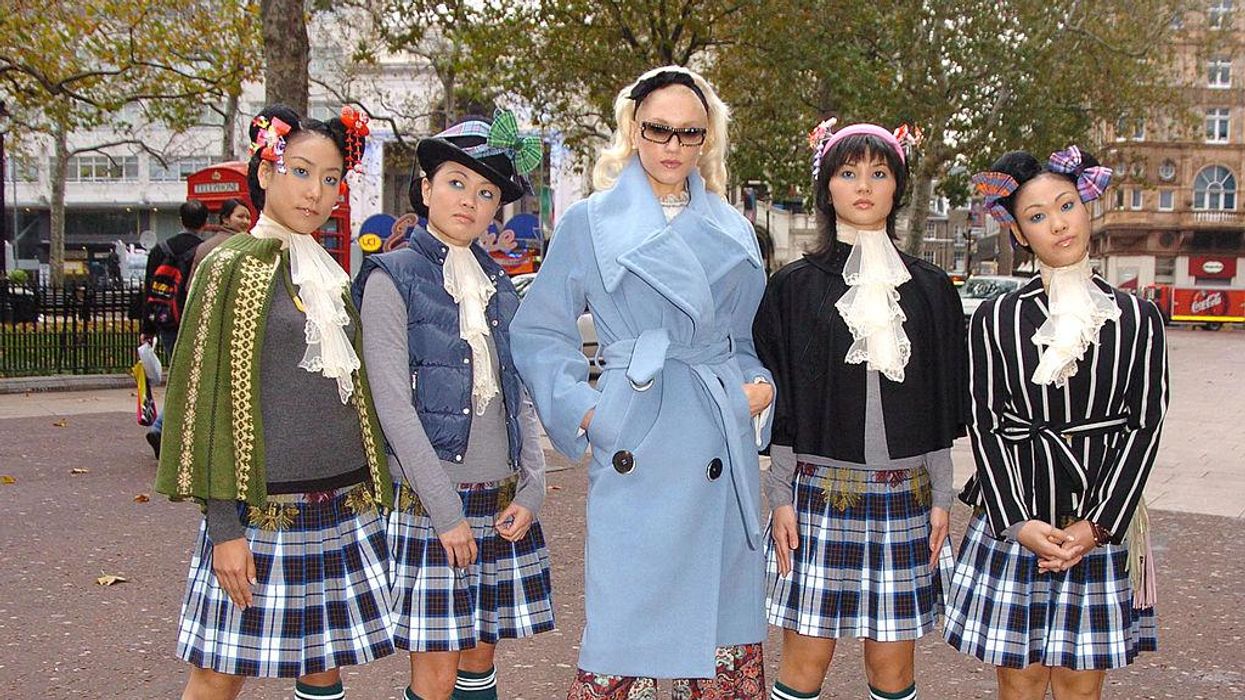
Photo by Jon Furniss/WireImage

In an interview with Allure, singer Gwen Stefani reminisced about traveling to Japan and the influence the culture had on her music and product lines. However, with quotes such as "my God, I'm Japanese and I didn't know it,'" the Irish-Italian singer faced questions about cultural appropriation.
"We all have different color skin and all have different things that we wear different colors for," Stefani explained regarding her new makeup line, spawning a question from the reporter about her previous line called the "Harajuku Lovers."
In the early 2000s, Stefani paraded around with a group of purposely non-verbal Japanese backup dancers called the "Harajuku Girls," who were the focus in several product lines.
Stefani recalled in the interview that her father worked for Japanese company Yamaha, which had her family traveling between the United States and Japan for 18 years.
"That was my Japanese influence, and that was a culture that was so rich with tradition, yet so futuristic [with] so much attention to art and detail and discipline, and it was fascinating to me," she explained.
"I said, 'My God, I'm Japanese and I didn't know it,'" Stefani said, recalling her return to Tokyo as an adult. At this point the Allure writer described Stefani's words as "hang[ing] in the air" between them.
"I am, you know," Stefani asserted.
The singer then responded to backlash about cultural appropriation, saying it doesn't feel right to be criticized for "being a fan of something beautiful and sharing" it.
The author and interviewer, senior editor of Allure Jesa Marie Calaor, interjected with her own personal experiences of racism despite not being Japanese.
"Like Stefani, I am not Japanese. But I am an Asian woman living in America, which comes with sobering realities during a time of heightened Asian American and Pacific Islander (AAPI) hate," the reporter says.
"I spent 32 minutes in conversation with Stefani, many of them devoted to her lengthy answer to my question about Harajuku Lovers. In that time, she said more than once that she is Japanese," Calaor continued. "Words don’t have to be hostile in their intent in order to potentially cause harm, and my colleague and I walked away from that half hour unsettled."
In July 2022, CNN took issue with Stefani's video for a song called "Light My Fire" featuring artists Sean Paul and Shenseea, who are both Jamaican, because Stefani wore dreadlocks and the colors of the Jamaican flag.
The artist has long worked with Jamaican artists and recorded an album in the country in 2001 alongside Jamaican producers.
Stefani's team reached out to Allure to say that Calaor had misunderstood, but the writer still expressed disappointment that Stefani "has not publicly expressed outrage" regarding anti-Asian racism.
Like Blaze News? Bypass the censors, sign up for our newsletters, and get stories like this direct to your inbox. Sign up here!
Andrew Chapados